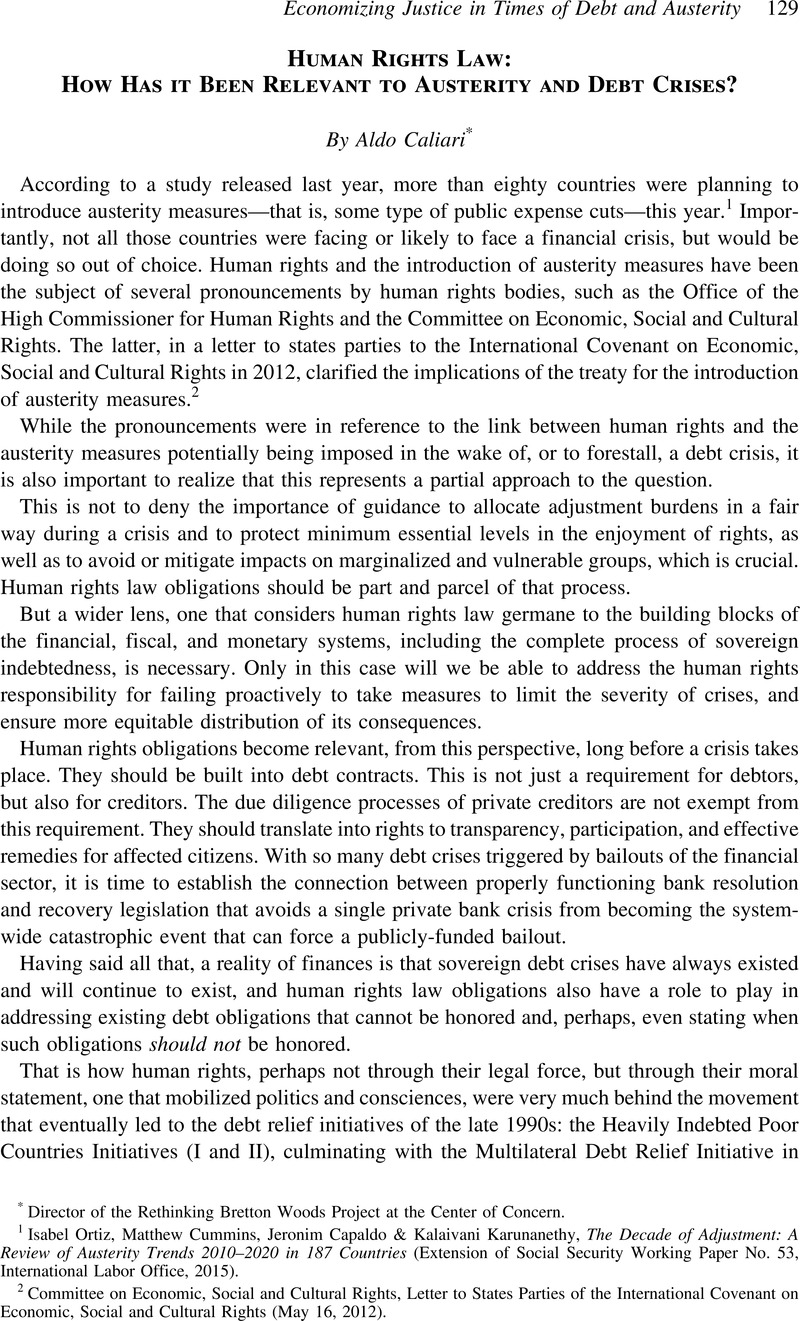No CrossRef data available.
Article contents
Human Rights Law: How has it been Relevant to Austerity and Debt Crises?
Published online by Cambridge University Press: 18 May 2017
Abstract

- Type
- Economizing Justice in Times of Debt and Austerity
- Information
- Copyright
- Copyright © American Society of International Law 2016
References
1 Isabel Ortiz, Matthew Cummins, Jeronim Capaldo & Kalaivani Karunanethy, The Decade of Adjustment: A Review of Austerity Trends 2010–2020 in 187 Countries (Extension of Social Security Working Paper No. 53, International Labor Office, 2015).
2 Committee on Economic, Social and Cultural Rights, Letter to States Parties of the International Covenant on Economic, Social and Cultural Rights (May 16, 2012).
3 Rep. of the International Conference on Financing for Development, ch. 1, res. 1, ann., para. 49, UN Doc. A/CONF.198/11 (2002).
4 World Bank Operations Evaluation Dep’t, Debt Relief for the Poorest: An Evaluation of the HIPC Initiative 5 (2003) (the external debt of the countries covered by the HIPC Initiative represented at the time approximately 8 percent of the total external debt of all developing countries).
5 Barry Herman, Dealing Deftly with Sovereign Debt Difficulties (Initiative for Policy Dialogue Working Paper Series, 2004).
6 See G.A. Res. 69/319 (Sept. 29, 2015) (declaring that “sovereign debt restructuring processes should be guided by the following Basic Principles … 8. Sustainability implies that sovereign debt restructuring workouts are completed in a timely and efficient manner and lead to a stable debt situation in the debtor State, preserving at the outset creditors' rights while promoting sustained and inclusive economic growth and sustainable development, minimizing economic and social costs, warranting the stability of the international financial system and respecting human rights.”).




